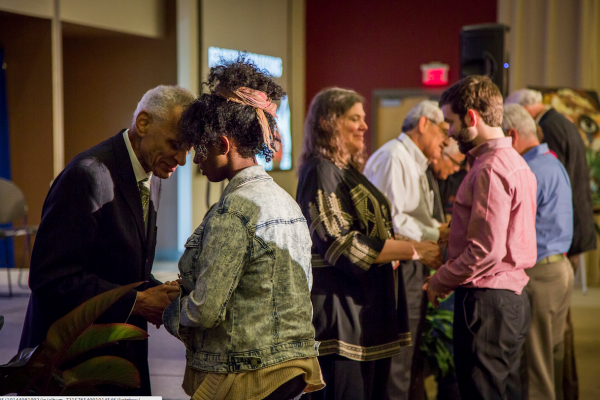Jul 10, 2015
Much more than an event or a conference, The Summit was the growing edge of the beloved community — a gathering of emerging leaders with deep reach into neighborhoods and communities that are outcast but vibrant, marginalized but standing tall. It was creative and radically inclusive, bringing together people with very different experiences in the struggle for a more just and peaceful world.
To be included as an elder for such an event was a humbling and lovely experience — even more so to share that experience with such wise and faithful disciples as C.T. Vivian and Eliseo Medina, Heidi Neumark and Terry LeBlanc, Katherine Marshall and Roy Sano. I gained much more from each conversation than I could possibly have given!
Read the Full Article

Already a subscriber? Login
